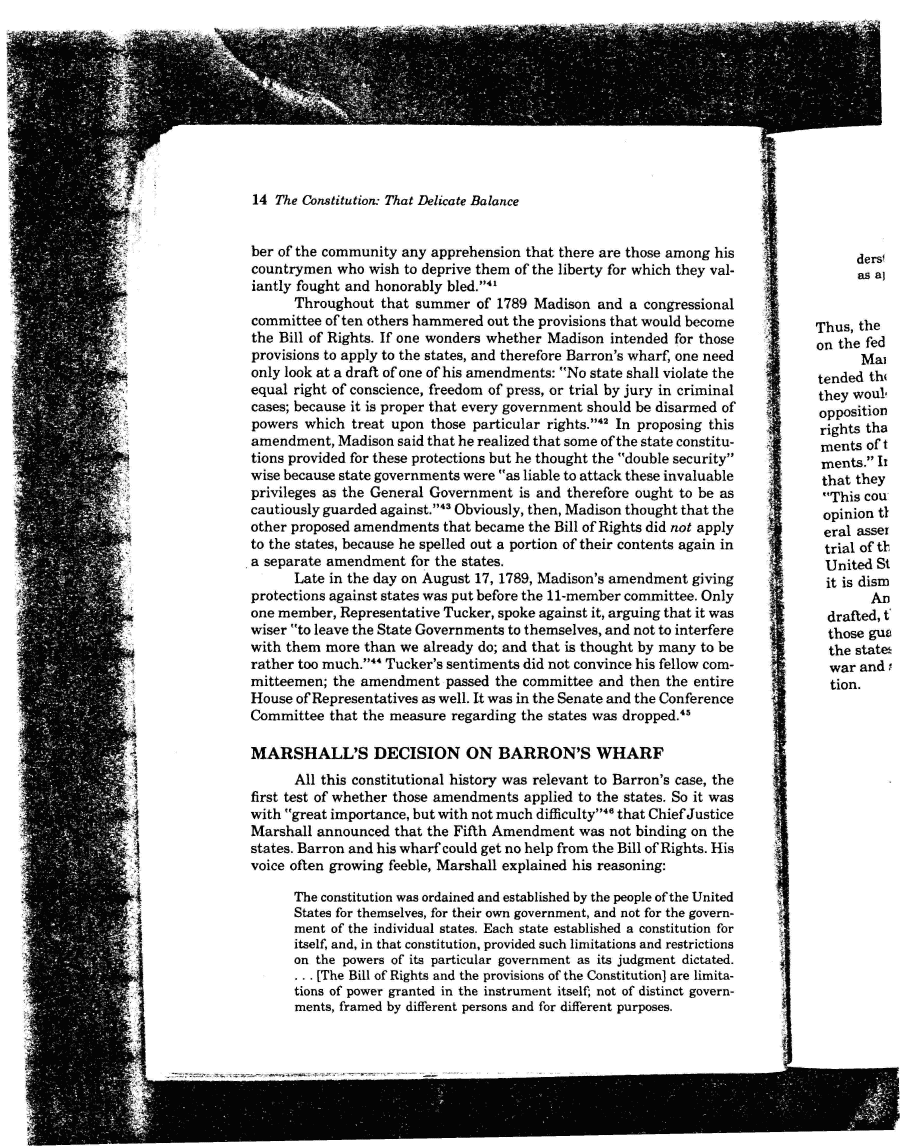|
14 The Constitution: That Delicate Balance
ber of the community any apprehension that there are those among his
countrymen who wish to deprive them of the liberty for which they val-
iantly fought and honorably bled."41
Throughout that summer of 1789 Madison and a congressional
committee often others hammered out the provisions that would become
the Bill of Rights. If one wonders whether Madison intended for those
provisions to apply to the states, and therefore Barren's wharf, one need
only look at a draft of one of his amendments: "No state shall violate the
equal right of conscience, freedom of press, or trial by jury in criminal
cases; because it is proper that every government should be disarmed of
powers which treat upon those particular rights."42 In proposing this
amendment, Madison said that he realized that some of the state constitu-
tions provided for these protections but he thought the "double security"
wise because state governments were "as liable to attack these invaluable
privileges as the General Government is and therefore ought to be as
cautiously guarded against."43 Obviously, then, Madison thought that the
other proposed amendments that became the Bill of Rights did not apply
to the states, because he spelled out a portion of their contents again in
a separate amendment for the states.
Late in the day on August 17, 1789, Madison's amendment giving
protections against states was put before the 11-member committee. Only
one member, Representative Tucker, spoke against it, arguing that it was
wiser "to leave the State Governments to themselves, and not to interfere
with them more than we already do; and that is thought by many to be
rather too much."44 Tucker's sentiments did not convince his fellow com-
mitteemen; the amendment passed the committee and then the entire
House of Representatives as well. It was in the Senate and the Conference
Committee that the measure regarding the states was dropped.45
MARSHALL'S DECISION ON BARRON'S WHARF
All this constitutional history was relevant to Barren's case, the
first test of whether those amendments applied to the states. So it was
with "great importance, but with not much difficulty"46 that Chief Justice
Marshall announced that the Fifth Amendment was not binding on the
states. Barren and his wharf could get no help from the Bill of Rights. His
voice often growing feeble, Marshall explained his reasoning:
The constitution was ordained and established by the people of the United
States for themselves, for their own government, and not for the govern-
ment of the individual states. Each state established a constitution for
itself, and, in that constitution, provided such limitations and restrictions
on the powers of its particular government as its judgment dictated.
. . . [The Bill of Rights and the provisions of the Constitution] are limita-
tions of power granted in the instrument itself; not of distinct govern-
ments, framed by different persons and for different purposes.
|

